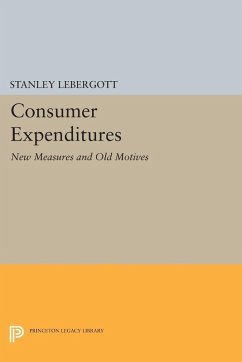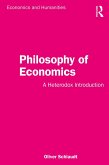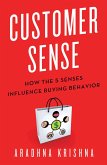Changing consumer choices have built microchip factories where cotton fields used to be and have doomed cities from New Bedford to Detroit, while the impact of these choices on jobs and tax revenues has stimulated the creation of models of consumer behavior. Even finely tuned econometric models, however, have not served well as guides for policy choices, for they have relied chiefly on data for the Great Depression and the Cold War era or on biased budget surveys. Stanley Lebergott here provides the way to greater realism with new data for the entire twentieth century, including the decades of peacetime prosperity. The new measures also permit moving from the level of the nation to the state.
Analyzing our interest in individual economic well-being, Lebergott argues that consumer expenditure provides a better guide than the usual data on money income before tax. He also challenges continued reliance on a single consumption function in macro models. In other essays he uses the new data to demonstrate that the supposed "flawed prosperity" of the 1920s was not responsible for the Great Depression; points out the limitations of the usual consumer budget surveys; and contrasts the role of age, nativity, and other factors in creating interstate differences. The new data, which link to the official BEA estimates, will provide raw material to test and extend theories of how the consumer and the economy function.
Originally published in 1995.
The Princeton Legacy Library uses the latest print-on-demand technology to again make available previously out-of-print books from the distinguished backlist of Princeton University Press. These editions preserve the original texts of these important books while presenting them in durable paperback and hardcover editions. The goal of the Princeton Legacy Library is to vastly increase access to the rich scholarly heritage found in the thousands of books published by Princeton University Press since its founding in 1905.
Analyzing our interest in individual economic well-being, Lebergott argues that consumer expenditure provides a better guide than the usual data on money income before tax. He also challenges continued reliance on a single consumption function in macro models. In other essays he uses the new data to demonstrate that the supposed "flawed prosperity" of the 1920s was not responsible for the Great Depression; points out the limitations of the usual consumer budget surveys; and contrasts the role of age, nativity, and other factors in creating interstate differences. The new data, which link to the official BEA estimates, will provide raw material to test and extend theories of how the consumer and the economy function.
Originally published in 1995.
The Princeton Legacy Library uses the latest print-on-demand technology to again make available previously out-of-print books from the distinguished backlist of Princeton University Press. These editions preserve the original texts of these important books while presenting them in durable paperback and hardcover editions. The goal of the Princeton Legacy Library is to vastly increase access to the rich scholarly heritage found in the thousands of books published by Princeton University Press since its founding in 1905.
Dieser Download kann aus rechtlichen Gründen nur mit Rechnungsadresse in A, D ausgeliefert werden.









